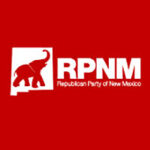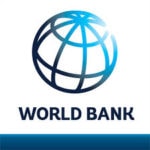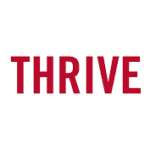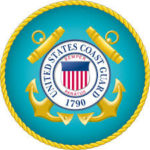What you need to know to manage a large corporate event
Organizing a large corporate event can be a daunting task, but if you have the right plan and tools in place, it can be accomplished with ease. To successfully manage a large corporate event, you’ll want to create an effective event registration process. To do this you’ll want to choose the best event registration platform that will speed up check-in on the day of the event. With this in mind, you will be able to ensure that your next big corporate event is an efficient and successful one.
Getting the registration process right is essential if you want to set up a successful corporate event. You need to make sure that participants can easily register and provide all the necessary information required. The best way to do this is by using an online event registration system. This type of platform allows registrants to quickly and conveniently input their information, making it easier for you to manage the event. You can also use the platform to collect payments, track attendance and provide follow-up information after the event has ended.
Once you have selected a registration platform, it is important that you create a check-in system that will save time on the day of the event. This may require setting up an on-site kiosk or having staff members manually check in each attendee. Having a streamlined check-in process will help ensure that the event runs smoothly and people can get to their seats quickly.
Planning a Large Corporate Event: A Step-by-Step Guide
Planning a large corporate event requires careful planning and consideration. In order to be successful, you must define the purpose of the event, set objectives and goals, determine who your target audience is, and plan your budget accordingly. This step-by-step guide will help ensure that you cover all of your bases when it comes to planning an effective large corporate event.

Define the Purpose of Your Event:
The first step in planning any large corporate event is to define its purpose. Consider why you are holding the event and what success looks like for it—what do you want your guests to take away from it? Is it intended to create awareness of a new product or service? Are you looking to build relationships with potential new customers? Once you have answered these questions, set SMART goals for yourself that will help guide your planning process.
Who is the Target Audience:
Knowing who will be attending your large corporate event is essential for ensuring that the right people are in attendance. Think about who would benefit most from attending—are they current customers or potential ones? Are they part of a specific demographic or industry? Once you have identified your target audience, determine how many people need to be invited in order to reach them. This will help inform decisions regarding venue size and type of catering services needed.
Budgeting:
Budgeting for a large corporate event can be a daunting task but there are several steps that can be taken to make sure that everything falls within budget. Start by creating an itemized list of expected expenses including venue rental fees, catering costs, entertainment costs, decorations, etc., and then factor in any additional costs such as transportation or lodging for out-of-town guests. It’s also important to consider any potential tax implications associated with the event before finalizing your budget plan.
How to Select the Right Venue for Your Corporate Event
As a CMP or PMP, you know that corporate events are complex and require careful planning. One of the most important elements of any large corporate event is selecting the right venue. Choosing the right venue can make or break your event, so it’s important to take the time to consider all factors before making a decision. Here are five key points to consider when selecting a venue for your next corporate event.

Location:
The location of your event is one of the most critical elements to consider when selecting a venue. You should always think about how easy (or difficult) it will be for attendees to get to and from the location – especially if you plan on providing transportation for them. If possible, choose a centrally located venue that is easily accessible by public transportation, taxi services, or short car rides. Additionally, if you plan on having an international audience, make sure that there is access to nearby airports and hotels.
Size Capacity:
It’s also important to consider how many people will be attending your event when selecting a venue. You don’t want your guests feeling cramped in an undersized space; at the same time, you don’t want them feeling lost in an oversized space either! Choose a venue that can comfortably accommodate your expected number of attendees and still have room for extra seating if needed.
Amenities:
When choosing a venue, you should also think about what amenities are offered at each location. Does this particular space offer catering services? What kind of audio/visual equipment do they have available? Are there rooms available for breakout sessions or private meetings? These are all questions you should ask yourself before making your final selection.
Accessibility & Parking:
In addition to choosing a centrally located venue with easy access for attendees, it is equally important to select one with ample parking options as well. Not all venues offer free parking; some may require payment from attendees who use their lot or garage (which could be quite costly). Whenever possible, try to find a location with either free parking or affordable rates so that your guests won’t have this added expense while attending your event.
Contracts & Agreements:
Once you have narrowed down your list of potential venues, it is time to start reviewing contracts and agreements with each one before signing anything officially. Make sure that you read through each contract completely—not just skimming over it—and ask questions if something isn’t clear or doesn’t seem right. Also remember that contracts should never be signed without first understanding what happens if something goes wrong during the event (e.g., refunds due in case of cancellation). Reviewing the clause pertaining to using external AV vendors is crucial. It is essential to strike this clause to avoid any restrictions that may arise, allowing you to opt for an outside vendor. This decision can significantly cut down your costs compared to using in-house AV departments that mark up to pay additional fees to venues.
Event Programming
Planning a successful event is not an easy task. As a Certified Meeting Professional (CMP) or Project Management Professional (PMP), you know that the success of an event depends on how well it is programmed. As such, it’s important to keep in mind the four key components when programming your event: keynote speakers, entertainment, networking opportunities, and audiovisual and technology needs. Let’s take a closer look at each one of these elements.

Keynote Speakers:
The keynote speaker is the highlight of any major event. It’s important to select someone who can both engage your audience and provide them with valuable information that they can use throughout their lives or careers. You should also choose someone who will bring energy and enthusiasm to the stage. Make sure that you research potential speakers thoroughly before making your final selection.
Entertainment:
Choosing entertainment for your event is just as important as choosing a keynote speaker. Entertainment helps create an atmosphere where people feel relaxed and engaged. It can be anything from music to comedy and interactive activities like trivia or scavenger hunts – whatever fits best with your event theme or topic. Be sure to select entertainment that can appeal to all members of your audience so everyone has an enjoyable experience.
Networking Opportunities:
Networking may not be everyone’s favorite part of attending an event, but it’s still an essential component for any successful gathering – whether it’s a corporate conference, educational seminar, or business retreat. Providing networking opportunities gives attendees the chance to make meaningful connections with others in their field while expanding their knowledge base and fostering relationships that may prove beneficial down the line.
Audiovisual & Technology Needs:
Audiovisual equipment is necessary for many events, especially those held in large venues where audio-visual assistance is required for presentations and other activities. Make sure you have all the necessary equipment on hand prior to the start of the program; otherwise, you risk losing valuable time during setup which could otherwise be used for networking or other activities instead! The same goes for technological needs such as Wi-Fi access for participants—make sure all tech needs are taken care of ahead of time so attendees are not left without basic amenities during your program!
Marketing & Promotion of the Event
Promoting an event is a critical aspect of planning, particularly for events with the goal of generating attendance. Before the event can start, people need to be aware that it’s happening. Here are some general strategies you can use in marketing and promoting an event, such as marketing strategy, advertising and public relations, social media and invitations and RSVP management.

Marketing Strategy:
Before launching into any promotional activities for your event, you need to develop a comprehensive marketing strategy. This involves understanding who your target audience is and how best to reach them so that you can generate adequate interest in your event. Your strategy should also include setting measurable goals which are achievable within the timeframe before your event happens. When devising a marketing plan for your event, remember to consider traditional methods like print or radio; however, digital promotion should be the main focus since most people access information online nowadays.
Advertising & Public Relations:
Advertising is one of the best ways to get word out about an event quickly. There are various channels through which advertising campaigns can be run – on social media platforms or even television ads if you have the budget available. Additionally, public relations (PR) should not be neglected as it helps build relationships between organizations and their customers/supporters. PR works by creating content such as press releases or articles that demonstrate why customers would benefit from attending an event organized by your organization.
Social Media:
Social media has become one of the most effective ways to reach potential attendees in today’s digital world. Platforms like Facebook and Twitter allow organizations to spread awareness about events through paid promotion options as well as organic posts, which can generate engagement from potential attendees in a more cost-effective way than traditional advertising campaigns do. Additionally, hosting giveaways or contests on social media is another great way to increase interest in an upcoming event as people love free stuff!
Invitations & RSVP Management:
Finally, invitations and RSVP management are important aspects of promoting any event since they help organizers keep track of who plans on attending their events so they know how many resources (food/beverages/seating etc.) they should provide at the venue on the day of the actual event itself. Invitations may be sent via email or even physical mailers depending on what kind of message you want to convey about your organization/company’s brand identity – either way it’s important to clearly communicate when people must RSVP by so that there are no surprises when it comes time for setup at the venue itself!
Everything You Need to Know About Event Logistics
Planning an event takes a lot of thought and preparation. From transportation to audio-visual equipment, there are many aspects of event logistics that need to be taken into consideration. To ensure the success of your event, it is important to understand the various components of logistics and how they can affect your overall plan. Let’s take a look at the different aspects of logistics that you should consider when planning an event.

Transportation:
Transportation is one of the most important elements in any event plan. It is important to determine what type of transportation will be needed for guests and staff, as well as any materials that need to be transported from one place to another. This could include ground transportation such as buses or vans, or air transportation such as planes or helicopters depending on the size and scope of the event.
Accommodation:
Accommodation is another key element in your event logistics plan. Depending on your budget and the size and duration of your event, you may need to provide lodging for attendees or staff during their stay. It is important to determine if accommodations will be provided onsite or if attendees will need to find their own accommodation offsite. You should also determine if there will be any restrictions on accommodations such as age limits, pet restrictions, smoking policies etc.
Food & Beverage:

Food and beverage are two integral components of any successful event plan. It is important to consider who will provide food and beverages for your event – whether that be an outside catering company or in-house staff – as well as what type of food will be served (such as a buffet style meal versus an à la carte menu). Additionally, it is important to consider what types of beverages should be available (alcoholic vs non-alcoholic) and how those beverages will be served (cash bar versus open bar).
Audio-Visual Equipment & Support:
Audio-visual equipment can make or break an event, so it is essential that you have a plan for audio-visual equipment set up ahead of time. This includes determining what type of equipment you need (such as microphones, speakers, projectors etc.), where it will come from (either rented or purchased), and who will handle setting up the equipment before and during the event (either internal staff or contracted professionals). It is also important to consider any additional support services you may need such as AV technicians who can troubleshoot any technical issues during the course of your events.
Security & Safety:
Finally, security and safety should always be taken into consideration when planning an event – regardless of size or scope. Depending on factors such as location and number of attendees, it might be necessary to hire security personnel who can monitor activity throughout the duration of your events. Additionally, it might also be necessary to have first aid personnel available in case someone gets injured during your events.
Post Event
Post-event analysis is fundamental for assessing whether an event was successful, and for informing future decisions. Feedback from attendees is one way to evaluate success; another is by analyzing key metrics such as cost per attendee or cost per lead. Engaging with attendees on social media creates goodwill for future events while gathering data from the current event offers valuable insights into audience preferences and popular topics for informed planning decisions. With these tried-and-true tips, you’ll be able to better measure event success!

How to Measure the Success of an Event:
Events of all sizes require a lot of planning and coordination. After months of hard work, it’s time to measure the success of your event against your goals. It’s important to look at both the intangible and tangible elements when assessing how successful your event was. Here are some tips on how to measure success after an event.
Thank You & Feedback from Attendees:
It is important to thank attendees for their time and participation, as this helps create goodwill towards future events. Collecting feedback from attendees is also essential in order to evaluate what worked well and what can be improved upon in future events. Gathering feedback can be done in many ways such as surveys, interviews, or questionnaires. This will help you determine whether the event met its objectives, as well as gather ideas for improving future events. Additionally, it’s helpful to engage with attendees on social media during the event so that they have a platform where they can share their experiences with others.
Post-Event Analysis:
Once the event is over and you have collected feedback from attendees, it is time to analyze how successful your event was in terms of reaching its goals. What did you achieve? Were there any unexpected outcomes? Was attendance higher than expected? Were there any areas where you exceeded expectations? Analytics such as gross revenue, marketing reach, or overall turnout can provide valuable insight into how effective your event was from a financial standpoint. Additionally, looking at analytics around website traffic or social media engagement can give you an indication of how well-received your content was online.
Future Planning:
The post-event analysis should also include next steps for upcoming events in order to improve upon past successes while avoiding potential pitfalls. Using data gathered from this current event as a starting point—such as insights into audience preferences or popular topics—can help inform future planning decisions and ensure that future events are even more successful than before! Additionally, analyzing key metrics such as cost per attendee or cost per lead will give you an indication of which aspects of your event were most effective in terms of ROI (return on investment).
Conclusion
Organizing a large corporate event demands meticulous planning and consideration. Contact us during your planning stage to ensure flawless execution of audio-visual equipment rental needs and onsite support. Involving us early on enables profound guidance on all aspects of the event, as technology now drives everything. Our team strives to become yours, working toward a common goal of ensuring seamless event planning and execution. Contact us today at 888-520-5667 and let us discuss your event.

















